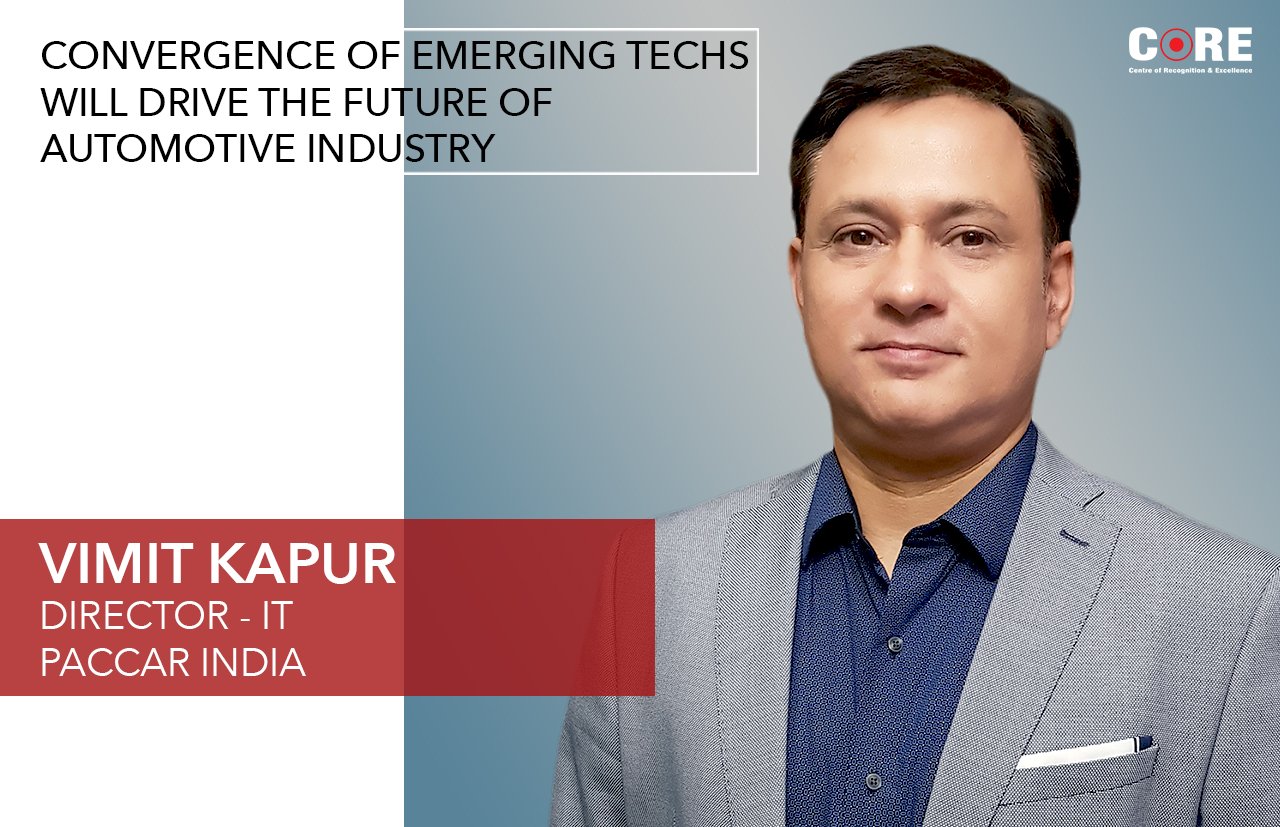Vimit Kapur, Director - IT, PACCAR India, talks about how the automotive sector is transforming processes and embracing new digital engagement models to be future-ready. PACCAR is an American Fortune 500 company and the largest manufacturers of medium- and heavy-duty trucks in the world.
Excerpts:
You joined PACCAR in the middle of the global disruption. How are you re-aligning business continuity strategies and what are the key focus areas?
Collaborative workplace is a key priority for us, as it naturally cultivates a sense of community within an organisation. Technology platforms will ensure dealing with this aspect quickly. Recent pandemic has made most of us realize the true potential of these collaborative platforms and I am sure we will continue to enhance and leverage them. Imagine an environment today across domains without these platforms and you will feel the need of increased collaborative workspaces through technology advancements.
Secondly, it is how you spend and plan the budgets. What you spend needs to be optimized and each organisation will have put together controls on what you're spending, and why you're spending. Traditional fundamentals of spending are being relooked at with a magnifying glass across organisations.
Thirdly, the focus must be on people. The shift to remote working has opened up the need to look at various aspects of employee well-being and productivity. We had several initiatives to support our teams on various fronts--be it overall wellness, leadership connect and cross skilling
You have been exploring cloud for a while now. In your opinion, how does cloud impact automotive industry, especially in these challenging times?
World is undergoing an overall transformation on the way storage of data is being looked at, from a traditional hardened infrastructure to utilizing cloud based infrastructures. When you start moving things on to the cloud, you can leverage and spend on a need basis. We must keep in mind that ‘one size fits all’ will not work on the cloud strategy.
It is going to be a journey and backup infrastructures will also see migration from tape based storages to automated backup solutions utilizing cloud, etc. Automotive world will see increased usage of cloud for the utilization of processed data into generating meaningful views. We are also in the process of cloud migration, and that would see a lot of focus going forward.
Where does Paccar India stand when it comes to digital transformation? How is COVID impacting this journey?
We are a Global organization with presence at multiple locations covering Europe, North America, Australia and Brazil. Each of these organizations, over some time, have enhanced themselves to all the automotive processes and technology advancements happening globally. For example, we are already running multiple programs on IoT like a Mobile Connect program for our Truck ecosystem, which is enabling them to come with connected digital devices. A lot of these programs are supported and are being looked at from being executed in India.
Transformation is an integral journey for any large enterprise like ours and always on progressive path. Overall, we have been able to reduce manual redundancies, focus on bringing in automations and thus make our vehicles future ready from an application perspective over a period of time.
Will IoT see more use-cases going forward, considering the budgetary pressures and so on? What is the expected business outcome?
PACCAR Indian team supports our global centres by leveraging IoT and technologies like AI/ML and analytics. Like all other automotive firms, we are also working very aggressively on the IoT enablement of our ecosystem and our trucks will be IoT enabled as well. We will be capturing a lot of data from machines, process that data through strong analytics and generate meaningful views, act as a source of data for building features like driving behaviours, dealer connect, etc. at real time.
Use Case exploration in IoT world is common and we are looking at various features and use cases to be built on the overall ecosystem such as navigation controls, machine readiness with respect to capability, etc. We are primarily doing a lot of data analytics work from India - data science and data engineering-- and delivering rich models enabling business exploration and building of various customer journeys using various models and views.
In your view how technological advancements in the field of IoT, AI, and ADAS are boosting the heavy-duty trucks market?
Basically, the advanced driver-assistance systems (ADAS) and IoT are generating an end to end view for the customer. In my view, we will see more of these use cases in 2021 because we've been focusing primarily on how to give the best functionality to a customer.
For example, how the dealership network and service network talks to the customer, are on a single view. A lot of automotive players are coming up with apps and leveraging digital transformations to enable “customer first” approach. Simple examples include customer is no more dependent on service centres to book appointments for servicing. Dealer dependency is reduced and a single app gives all the required functionality. I see all of these as a connected world where the customer is the initial and the endpoint.
I see IoT, AI, and ADAS converging specifically for a vehicle market. These technologies will allow organizations like us to optimize on the cost that we spend to generate our automotive.


